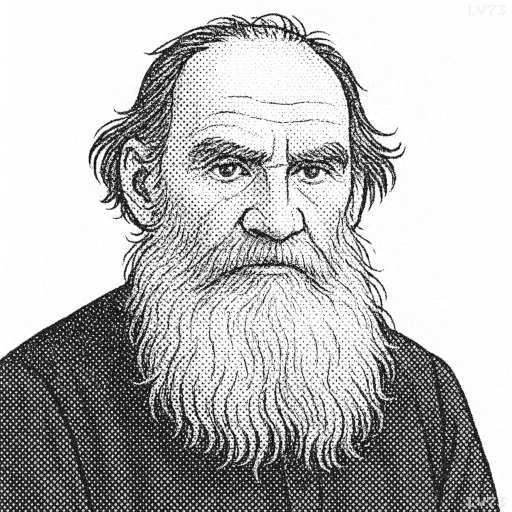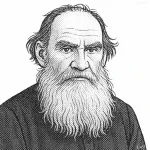“Man lives consciously for himself, but is an unconscious instrument in the attainment of the historic, universal, aims of humanity.”

- September 9, 1828 – November 20, 1910
- Born in Russia
- Writer, philosopher
table of contents
Quote
“Man lives consciously for himself, but is an unconscious instrument in the attainment of the historic, universal, aims of humanity.”
Explanation
In this quote, Leo Tolstoy explores the dual nature of human existence: on one hand, individuals live their lives pursuing their own desires, ambitions, and personal goals, but on the other, they unknowingly contribute to larger, collective historical processes. Tolstoy suggests that while humans are often focused on personal fulfillment, they play an essential role in the unfolding of the grand, universal aims of humanity—goals that are far beyond any one individual’s understanding or intention. This implies that human actions, though often driven by personal motives, are woven into the broader narrative of history, and contribute to the larger direction of human progress, even if individuals are unaware of it.
This idea remains relevant today, particularly when we consider the complex interconnectedness of individual actions and societal movements. Modern society often emphasizes individual success and self-fulfillment, but our daily choices and actions—no matter how small—can have a profound impact on social change, cultural development, and global progress. Whether it’s through participation in social movements, technological advancements, or collective shifts in values, individuals contribute to the larger currents of history, even without conscious awareness of their influence.
Tolstoy’s own life and writing were deeply concerned with the tension between individual desires and the larger moral or spiritual goals of humanity. In his later years, Tolstoy became increasingly focused on the spiritual and ethical development of humanity, believing that true fulfillment came not from pursuing personal gain, but from aligning oneself with universal principles of goodness and compassion. His works, such as War and Peace and Anna Karenina, often illustrate how individuals, through their personal lives and struggles, are inevitably caught up in the broader historical and moral currents of their time. The quote highlights the humbling reality that we are all part of something much larger than ourselves, whether we realize it or not.
Would you like to share your impressions or related stories about this quote in the comments section?


